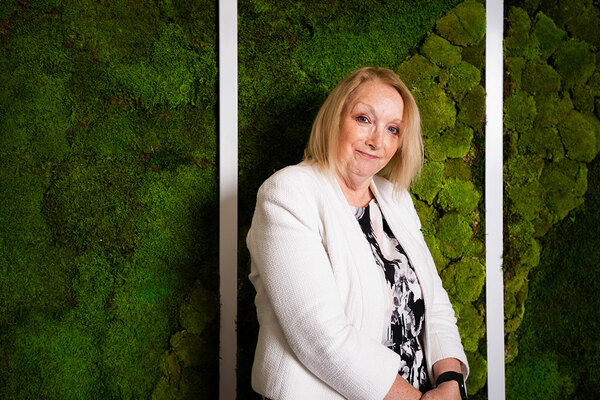You are viewing 1 of your 1 free articles
Young people struggling with mental health issues need our help
Mental health support services are vital for young people’s well-being – and save money in the long run, writes Julie Walker
This week, 1,200 colleagues from across the Gentoo Group will share a cuppa and cake as part of ‘Time to Talk Day’ – a national campaign led by mental health charity Mind to encourage conversations about mental health.
It’s hugely important for us as housing providers to raise awareness of mental health issues among our colleagues and our tenants, and to ensure we provide the right support for people experiencing such issues.
One important group to which we provide mental health support is our younger tenants.
Earlier this month, The Independent reported a significant rise in the number of mental health issues among young people, along with findings from a recent survey of almost 1,000 GPs across the UK that suggested mental health services for children and young people are inadequate.
In Sunderland, we know through the work we do as part of our younger person’s service that the waiting time for referrals to the local psychological well-being service is a matter of months for young people experiencing mental health issues, with more than 1,000 currently on the waiting list for support or intervention.
It’s hard to think how anyone, let alone a young person, can wait so long for support. There’s also no doubt that during such a period of time, a person’s mental health could seriously deteriorate.
That’s why our younger person’s service is so crucial. Part of Gentoo’s wider well-being service that we offer to our tenants, it supports young people aged between 16 and 24 years old to live independently, with the ultimate aim of teaching them how to sustain a tenancy.
It’s a service we have provided since 2003 that includes housing young people at our Holmewood facility on the outskirts of Sunderland city centre, as well as through an outreach service in the community that is funded solely by us.
Last year, we supported more than 170 young tenants, including people such as ‘Ellie’. Ellie is a girl who was referred to us by Sunderland City Council’s children’s services when she was 16, following a family relationship breakdown. We were advised that Ellie had been involved in several domestic incidents with her father and had a history of drug and alcohol misuse.
To cut short a long and complex story: Ellie moved into our Holmewood facility. She really struggled to adjust there – she had behavioural issues, showed little respect for our staff and ran up significant rent arrears. Staff and her parents were even more concerned for her welfare, after she disclosed she self-harmed and had attempted suicide.
Despite numerous efforts by our staff to help Ellie, she just wouldn’t change her ways. She was issued with a notice to quit and faced becoming homeless.
It was at this point that she became pregnant. Not only was she now on the brink of homelessness, the local authority might take her baby into care when it was born.
However, after co-operating with the support offered by our young person’s team, Ellie turned her life around. Our early intervention was absolutely vital in helping her turn a corner, and provided her with the opportunity to create a family home for her and her baby.
“Young people deserve to have the opportunity to live independently in safe, secure, affordable, good-quality homes. It’s absolutely crucial that we see further funding for early intervention and support services for young people with complex needs such as mental health”
We have calculated the support we provided Ellie cost around £16,000 and resulted in the most positive outcome possible. But if it had been unavailable to her, she would have ended up homeless, and it is highly likely she and her baby would have been taken into the care of the local authority, at a cost of around £55,000 to the public purse.
So the benefit of providing such support to young people is very clear.
Young people deserve to have the opportunity to live independently in safe, secure, affordable, good-quality homes. It’s absolutely crucial that we see further funding for early intervention and support services for young people with complex needs such as mental health.
At the end of the day, you can’t put a price on someone’s life.
Julie Walker, head of operations, Gentoo
Six standards for social housing providers on mental health
Picture: Getty
Commitment one: Prioritise mental health in the workplace by developing and delivering a systematic programme of activity
Commitment two: Proactively ensure work design and organisational culture drive positive mental health outcomes
Commitment three: Promote an open culture around mental health
Commitment four: Increase organisational confidence and capability
Commitment five: Provide mental health tools and support
Commitment six: Increase transparency and accountability through internal and external reporting
Source: Mind report for the Chartered Institute of Housing (published on the evening of 5 February)












